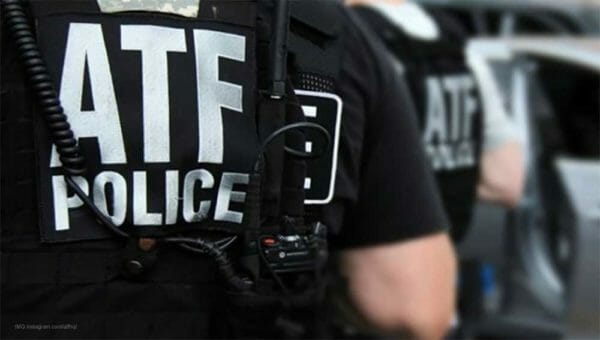
A federal judge in Texas has issued a Preliminary Injunction (PI) against the Bureau of Alcohol, Tobacco, Firearms and Explosives’ (ATF) from enforcing its Final Rule about being engaged in the business of selling firearms.
The lawsuit, Texas v. ATF, was filed by Gun Owners of America (GOA), Gun Owners Foundation (GOF), Virginia Citizens Defense League (VCDL), Tennessee Firearms Association (TFA), Louisiana, Utah, Mississippi, and Texas after the ATF announced a new rule requiring most gun sellers to obtain a Federal Firearms License (FFL) before selling any firearms. The rule was in response to a request by President Joe Biden. The elderly Biden has been frustrated by being unable to pass a federal universal background check (UBC) law.
The ATF used the power they claimed was given to them by John Cornyn and other members of Congress through the Bipartisan Safer Communities Act (BSCA) to change the rule on who needs an FFL to sell a gun. The ATF said a person no longer needs to be selling firearms to make money to be considered “engaged in the business” of selling guns. Simply advertising a firearm for sale by creating a flyer or posting it online was enough to be considered an “unlicensed gun dealer.” Keeping records or putting a gun on a table for sale was enough to be considered engaging in the business of selling firearms.
One of the most disturbing parts of the new ATF rule is the presumption of guilt. The ATF will take the default position that someone is violating the rule unless that person can prove otherwise. This stance turns the “innocent until proven guilty” principle on its head.
Before the rule was enacted, the plaintiffs in the case asked Federal District Court Judge Matthew J. Kacsmaryk to issue a temporary restraining order (TRO) to prevent the rule from being enacted. The Northern District of Texas judge granted the request for a TRO for the plaintiffs, including residents of the named states and members of the organizations. The ATF would answer by stating that none of the parties have the standing to sue. An idea that Judge Kacsmaryk outright rejected.
The judge also highlighted how the rule differs from the BSCA. He states that this difference could violate the Administrative Procedures Act (APA), and therefore, the plaintiffs are likely to succeed on the merits of the case. The judge seemed to have a significant problem with the fact that the ATF says that selling a single firearm could require an FFL, which is something never mentioned in the BSCA.
“Here, the Final Rule clashes with the text of the BSCA in at least three ways,” the judge wrote. “First, it asserts that there is no ‘minimum number of firearms to actually be sold to be ‘engaged in the business’’ for the purposes of the licensing requirement. ‘[A] single firearm transaction’ — or even a mere offer to engage in a transaction — may suffice.”
Judge Kacsmaryk also stated that the plaintiffs would likely suffer irreputable harm if the rule were allowed to go into effect because it could lock up many people’s funds if they need to sell guns for things like paying bills. The judge also noted that the balance of interest must be decided for the plaintiffs if the rule is unlawful.
“Moreover, ‘[t]here is generally no public interest in the perpetuation of unlawful agency Action,’” the judge wrote. “And as this Court’s analysis makes clear, Defendants’ Final Rule is almost certainly violative of — at the least — the APA. As such, ‘both the balance of equities and the public interest weigh in favor of allowing orderly judicial review of the Rule before anyone shuts down their businesses or sends them to jail.’”
The PI only applies to GOA, TFA, and VCDL members or Louisiana, Utah, Mississippi, and Texas residents. Since the organizations do not have to give up a membership list, there is no way for the ATF to verify who is covered by the PI, making it almost impossible for the government to enforce the rule against anyone.
The government is expected to appeal the Court’s decision while waiting on a hearing about a permanent injunction, but the Fifth Circuit Court of Appeals has been critical of other ATF rules, making the ATF’s task of winning an appeal an almost impossible challenge.
About John Crump
John is a NRA instructor and a constitutional activist. Mr. Crump has written about firearms, interviewed people of all walks of life, and on the Constitution. John lives in Northern Virginia with his wife and sons and can be followed on Twitter at @crumpyss, or at www.crumpy.com.

from https://ift.tt/zbFYBrT
via IFTTT

No comments:
Post a Comment